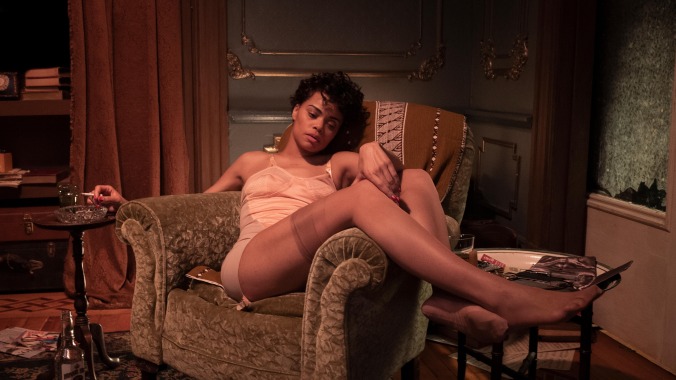On the snubs, surprises, and Bad Terminators of the 2021 Oscar nominations

The nominations for the 2021 Academy Awards were announced a few hours ago, at the ass crack of dawn, as per tradition. There were, as always, winners and losers, frontrunners confirmed and surprises to celebrate. There was not a fundamental change in the kind of movies—or, at the very least, the kind of distribution players—that tend to come out on top at Hollywood’s annual ode to itself. Halfway through 2020, we here at The A.V. Club dared to wonder if an unprecedented year for film releasing might result in some unprecedented love for productions not backed by the major studios, their mini-major subsidiaries, or the streaming giants swiping for their crown. It was a dream as nice but naïve as the one chased by the earnest, plucky frontier entrepreneurs of our favorite movie of 2020, predictably un-cited this morning.
No, First Cow didn’t become an Oscar movie, even in a year without prospective big-screen blockbusters like Steven Spielberg’s West Side Story to elbow it out. But the Academy did go for Minari, another quiet A24 acquisition about modest dreams in rural America. And plenty more of our favorites from the last 14 months—including an early contender for one of the best of 2021—scored nominations. So maybe it’s churlish to complain about the lack of truly independent cinema represented, just as it was foolish to ever entertain the thought that the Academy might look beyond the industry for which it exists primarily to congratulate and boost. Not that there aren’t follies and foibles to call out besides. What Bad Terminators traveled back in time to make Glenn Close’s garish supporting turn in Hillbilly Elegy a Razzie and Oscar nominee?
Last year was rich with great work by female filmmakers, which is perhaps reflected in the record 70 women nominated for Oscars—including, in a first for the Academy, two in the Best Director category, Nomadland’s Chloé Zhao and Promising Young Woman’s Emerald Fennell. Zhao is the first woman of color ever nominated there; her Nomadland, an A.V. Club favorite that’s currently streaming on Hulu, is competing for six Oscars, including Best Picture, Best Actress, and Best Adapted Screenplay. That it’s the best-reviewed movie of last year might seem to position it as the one to beat on Oscar night, but never count on the Academy’s taste completely aligning with critics’. Also, Nomadland is competing against Mank, which is about Hollywood itself and picked up a whopping 10 nominations, more than any other film this year.
The Academy also made history by nominating three Black actors in one category, with Leslie Odom Jr.’s take on Sam Cooke in One Night In Miami… competing against Daniel Kaluuya and LaKeith Stanfield, the two headliners of Judas And The Black Messiah, for Best Supporting Actor. (All three are arguably leads in their movies, though that gets tricky when you’re talking about dramas with ensemble casts.) Black artists didn’t fare as well on the other side of the camera or in the Best Picture lineup, which doesn’t include Spike Lee’s well-reviewed summer Netflix joint Da 5 Bloods, nor two stage adaptations—Ma Rainey’s Black Bottom and One Night In Miami…—widely believed to be in the running for the top prize. Speaking of Bloods, among the most disappointing of this year’s omissions was Delroy Lindo’s absence from the Best Actor category: The movie has its problems, but his fiery, anguished performance as a Vietnam vet swallowed by resentment and the cult of MAGA isn’t one of them.
As for most pleasant surprises, there was the unexpected Best Director nod for Danish filmmaker (and one-time Dogme 95 signee) Thomas Vinterberg, whose drinking drama Another Round is now almost certainly the favorite for Best International Feature. I was also happy to see Stanfield nominated; though a lot of the precursor attention for Judas has centered on Kaluuya’s commanding work as slain Black Panther Fred Hampton, it’s Stanfield’s desperate, guilty rat in a maze William O’Neal who gives the film its urgency. (Also, the guy’s been roundly, consistently great in supporting roles for years now.) In general, Best Supporting Actor boasts some of the worthiest nominees this year, with Sound Of Metal’s terrific Paul Raci—a character actor who didn’t even have a Wikipedia page until fairly recently—also making the cut.
So how did the expanded eligibility window end up affecting the race? Allowing early 2021 films to compete paid off for Judas, certainly—with six nominations, it’s among the most well-represented (and, for this critic’s money, one of the more deserving) films competing. The longer calendar also seems to have worked out well for Andra Day, up for Best Actress for her work in the title role of Lee Daniels’ The United States Vs. Billie Holiday. That the film was available to stream on Hulu during the voting period couldn’t have hurt her chances; possibly instrumental, too, was the fact that she won the Golden Globe before Academy voters even had their ballots, making this the rare year where the results of that ceremony may actually have reshaped the Oscars race.
On the other hand, Jodie Foster isn’t among this year’s Best Supporting Actress nominees, despite her Globes win: The Mauritanian joins The Little Things and Cherry on the list of last-minute awards hopefuls completely ignored by AMPAS. At least they’re in good company, among the First Cows and Assistants of the world—films that would probably be too small to ever grab the attention of this voting bloc, even if they hadn’t opened too early (instead of too late) to make a dent in the solidifying narratives of Oscar season. Good and bad alike, this year’s nominees paint a picture of a system perpetuating itself: awards to fuel Hollywood’s engines, at a time when fear of a full-blown breakdown on the side of the road is probably on every member’s mind.